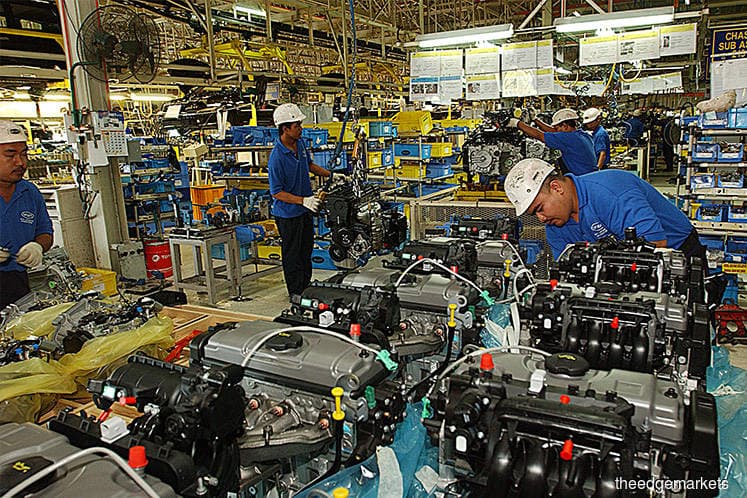
This article first appeared in The Edge Financial Daily on April 2, 2019
KUALA LUMPUR: Malaysia’s Nikkei Manufacturing Purchasing Managers’ Index (PMI) deteriorated to a three-month low of 47.2 in March, signalling worsening business conditions.
This marked a rapid decline from a reading of 49.6 in February and is the lowest PMI for the country since December 2018’s 46.8.
“Malaysia [recorded] notable falls in output and new orders,” IHS Markit said in a statement on its Asean Manufacturing PMI.
Malaysia’s PMI has not breached the confidence level of 50, separating growth from contraction, since September last year.
In contrast, business conditions in other Asean countries improved for the first time this year led by improvements in Myanmar and Vietnam.
The Nikkei Asean Manufacturing PMI rose to 50.3 in March from 49.6 in February, as manufacturers expanded output more quickly on a slight rebound in new orders.
“At the current levels, the survey’s data are indicative of annual output growth close to 4%,” IHS Markit said.
According to anecdotal evidence from the PMI panel member companies, the deterioration in production trend commonly reflects tougher demand conditions, especially in overseas markets, IHS Markit said.
However, IHS Markit chief business economist Chris Williamson said Malaysia’s manufacturing companies also reported a brightening outlook, adding to hopes that the recent slowdown may ease in the coming months.
Local economists questioned the PMI’s reliability as an indicator of future output as its correlation with the Industrial Production Index (IPI) has not been stable.
“It may signal a weakness in economic activities in the coming months but the correlation with the actual numbers has not been that reliable, said Dr Yeah Kim Leng, professor of economics at Sunway Business School.
“Aggregate demand, while moderating, is still growing in the US and China and this has sustained Malaysia’s output growth.
“Most indicators are not pointing to an economic contraction, the latest being a turnaround in China’s PMI,” Yeah said.
Yesterday, China posted an unexpected growth in its official PMI to 50.5, while the Caixin/Markit PMI for the country also surprised analysts by returning to growth at 50.8.
Socio-economic Research Centre executive director Lee Heng Guie pointed out the IPI is still showing growth.
“The Nikkei PMI could be a good sentiment gauge, but we cannot jump to conclusions,” he said.